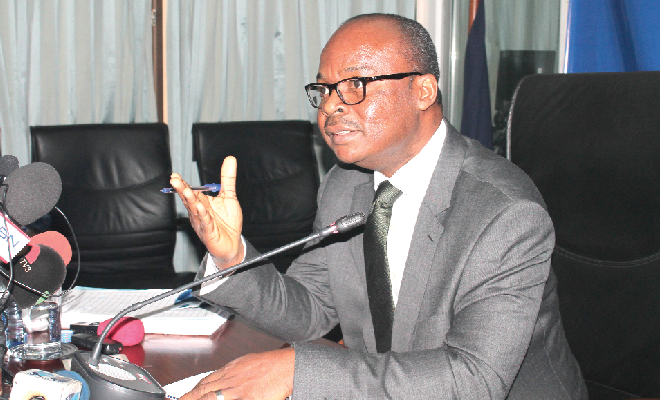
The impact of blockchain on the mining industry in Africa Miners are you ready for the future?
This article is the first part of a two-part series.
This first part of the series will give a general background of
The second part will conclude with the benefits of blockchain and some blockchain stories from Africa.
There is a quiet revolution in the technology space called blockchain.
One would ask: “What exactly is it and why is it important to players in Africa’s mining industry?”
What is blockchain?
Each block contains a timestamp and its integrity and security
Information in the ledger can be changed only with the consensus of a majority of participants.
Current uses of the blockchain
Although Blockchain is a relatively new concept, it is currently being used in the industry for the following activities:
Tracking conflict minerals
Blockchain allows stakeholders to know every set of hands the minerals have passed through, from the time it is mined, to when the final owner takes custody of it.
In the diamond trade
These entries include the
Stakeholders have replaced paper certification processes with a blockchain ledger using computer scanning tools to access a digital vault and to determine the origin of any diamond.
Improving the supply chain
Australia’s biggest mining company, BHP Billiton, is using blockchain technology to improve its supply chain processes.
The company was using spreadsheets in the past to record movements of wellbore rock and fluid samples. However, the new blockchain platform has allowed BHP to share data with its vendors.
Thus, working more effectively with them and enhancing internal efficiencies.
Potential uses of a blockchain
Blockchain provides security and transparency in business
It serves as a base application on which other functionalities can be built, therefore, making it relevant to the operational and commercial aspects of mining: from
Maintaining integrity Exploration data, laboratory analysis reports and other key information is typically recorded in databases as spreadsheets and in other formats that are prone to alteration and manipulation, and are usually shared via emails.
With multiple stakeholders involved, blockchain can guarantee the integrity and authenticity of information because records in blockchain cannot be altered or removed.
Monitoring
Blockchain can be used to monitor all minerals received and discharged from a port.
The total amount of minerals received would be credited to the sender and outbound operations would be registered for every vessel’s loading operations.
The location of minerals and inventory would also be shown in real time.
This will help hold stakeholders accountable over their operations.
Reconciliation
This is an area that most mining companies admittedly find challenging.
Blockchain can automate this reconciliation such that the value at the points of production and processing is automatically registered in the ledger.
Miners need to officially register mining rights and intellectual property on a first come first served basis.
Blockchain could be used to automate the registration process and replace the need for registering findings with government agencies.
In this scenario, there would be minimal chance of conflict as blockchain would allow the mining company to prove precedence over several others.
Through blockchain technology, mining companies will have their certified information securely recorded.
The blockchain record would enable anyone to verify information such as the ore beneath the earth’s surface as well as the specific geographic location of the ore.
This could also be linked to a physical tag that detects if the ore body is moved or disturbed and communicates that information to a Smart Contract, which would
The same holds true for mining companies that make a discovery or invention.
Facilitates
Accounting in complex joint ventures could be simplified because of the transparency that blockchain provides.
Blockchain can automate end-to-end tracking of metals and minerals through smart contracts and ensure that records are not altered.
Containers of concentrates and ore could be stamped with a unique reference that will subsequently be logged on a blockchain.
The reference will include information on the quality and quantity of each container and would be continually updated with tracking and logging movements.
However, the risk that concentrates and ores could be mixed with materials of undetermined origin prior to being sealed in the containers remains a possibility.
In the next edition, we will conclude with the benefits of blockchain and some blockchain stories from Africa. — GB
